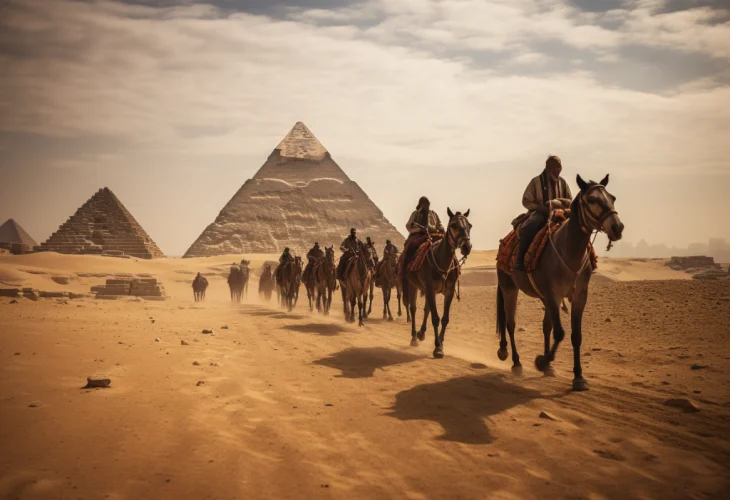Unpacking the History of Horses in Ancient Israel
Why did the Torah limit the king of Israel from acquiring many horses, and how did horses eventually find their way to Israel? Here's the captivating story.

The Torah doesn't overwhelm the king of Israel with many commandments. There are three prohibitions: do not have many wives, do not accumulate excessive silver and gold, and do not gather many horses.
Why not gather many horses? To prevent the nation from returning to Egypt.
Were horses really only in Egypt?
Not exactly. While horses existed elsewhere, the Egyptians had a monopoly on them. As Rashi explains in his commentary on Kings regarding the verse "And Solomon's horses were imported from Egypt": "The horse traders were from Egypt. King Solomon's merchants would buy them at a set price from the Egyptian Pharaoh, for no one could remove a horse from there except through them."
The Egyptians not only bred and improved horses but were also shrewd businessmen. This conduct continued into the Talmudic era, as illustrated by the story: "An incident occurred with a cow whose womb was removed, and Rabbi Tarfon fed it to the dogs, assuming it was 'treifah,' not able to survive such an injury. The case was brought before the sages in Yavne and permitted, for the physician Theodosius stated that no cow or pig left Alexandria in Egypt without the womb being removed to prevent breeding."
The Egyptians raised superior breeds of animals, and were willing to sell them, yet they kept the "intellectual property"—no womb, no offspring...
Now we understand the Torah's phrase "do not increase horses." A few horses, which cannot reproduce, could be bought from traders. However, to increase and raise herds sufficient for his army, the king would need to go to Egypt, negotiate with the Egyptians, and pay amounts of gold only Solomon could afford, to obtain the necessary permission. This is how Solomon acted, and the prophet criticizes him for it.
Indeed, we see that our ancestors had no horses. Abraham rode a donkey, and throughout the narrative, only "our camels and donkeys" are mentioned. Even in the Judges period, and during King David's time, the animal of choice was the mule. David owned such a mule, as did other significant figures of his era, but not horses.
It was Solomon who introduced horses to Israel. However, once they were imported, there was no need to return to Egypt, and horses are frequently mentioned from Solomon's time onward, as they adapted and multiplied in the land.
Horses are depicted by the prophets as belonging to other nations, with people relying on them instead of Hashem: "Woe to those who go down to Egypt for help and rely on horses; they trust in chariots because they are many, and in horsemen because they are strong, yet do not look to the Holy One of Israel nor seek Hashem" (Isaiah 31).

